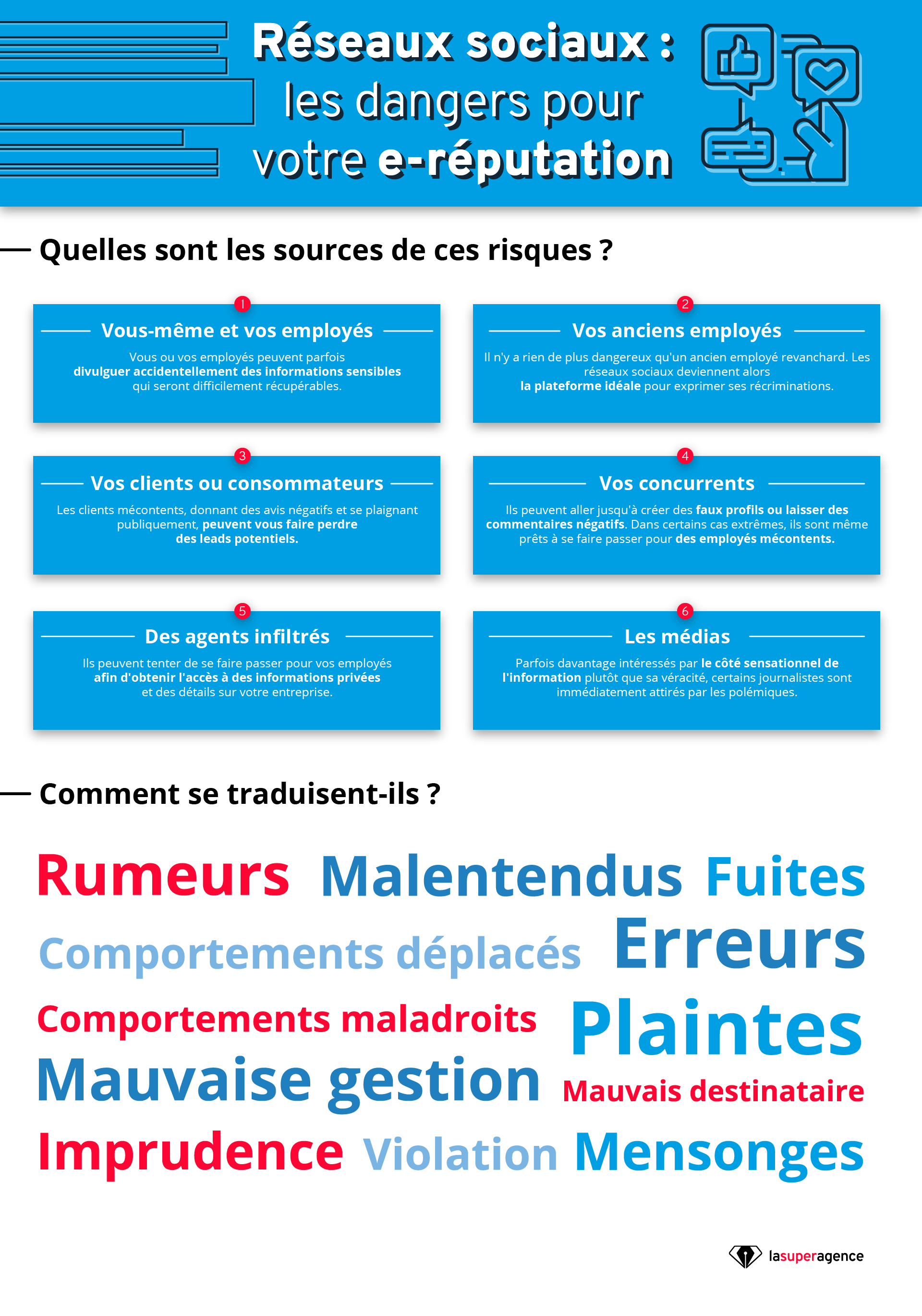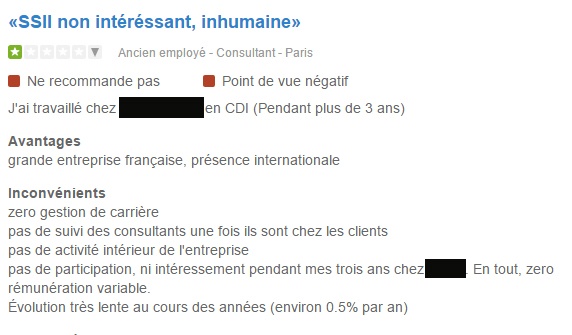Everyone tells you it's essential to have a presence on social media.
But who tells you to be vigilant?
The ancestors of social networks (forums, suggestion boxes, sharing groups) were practical tools, available to companies when they wanted them.
Today the network is global, instantaneous, and above all uncontrollable.
Yet, despite significant dangers, few companies seem to consider the problems that social networks can cause to a company's reputation and its employer brand.
What are the sources of risk?

Yourself and your employees
What makes you strong, especially in an Inbound Recruiting, can also make you weak when it comes to your e-reputation.
You or your employees may sometimes accidentally disclose sensitive information that will be difficult to recover.
In extreme cases, this may be a slip-up calling for a public apology.

The case of the slip of the PSG player Serge Aurier, shows how difficult it is to control the communication of its employees on social networks.
Your former employees
There's nothing more dangerous than a vengeful former employee. Social networks then become the ideal platform to express his recriminations.
The Glassdoor can, for example, provide them with a platform to say all the bad things they think about you.
In this particular case, it's not an accident, but a settlement of scores pure and simple.

Here's an example of a settlement on Glassdoor.
Your clients or customers
Candidates pay attention to what your current or past customers say about you, your services or your products.
Unhappy customers, giving negative reviews and complaining publicly, can cause you to lose potential leads.

Your competitors
Maybe you're in a unfriendly industry where competitors don't mind trying to smear your reputation, both with your clients and with your future candidates?
They may go so far as to create false profiles or leave negative comments.
In some extreme cases, they are even willing to pose as disgruntled employees to spread false information about your company.
Undercover agents
The term may make you smile, but the danger is very real. A hacker can also cause a lot of problems through social networks.
For example, they can recover publicly available information about company and employee profiles.
Then they attempt to impersonate your employees in order to gain access to private information and details about your company.
Note that in some cases, these individuals may be paid by your competitors.

The hacking of Babybel's Facebook page was fortunately without much consequence.
The Media
Sometimes more interested in the sensational side of the news than its veracity, some journalists are immediately drawn to controversy, especially on Twitter.
In a few tweets, they can draw enormous attention to a company that will be called upon to justify itself.
Or this kind of bad publicity can permanently tarnish your employer brand.
How do these risks translate into practice ?
Your e-reputation and your ability to recruit can be tainted in many, many ways on social networks.
Here's how the damage is likely to manifest itself:

By Rumor
Rumors are not necessarily dangers, but they can get out of hand and ultimately cause you problems.
The most problematic thing is that rumors often disguise themselves as "facts".
While rumors don't damage your e-reputation, they do need to be addressed. If you don't address the issue quickly, they will relentlessly return (and usually at the worst times).
By mistakes
Whether it's typos, grammatical errors or things you should never have written, you or your employees can post embarrassing publications.
Of course you can correct or delete. Unfortunately, sometimes your mistake will already be seen, printed, indexed, or distributed elsewhere.
These silly mistakes can come back to haunt you. Worse: you may be accused of trying to hide them.
By misunderstandings
Misunderstandings are common. What you post can be misinterpreted.
Your message may come at the wrong time or be directed to the wrong people and it will be perceived negatively.
Sometimes it's a matter of awkward wording, double entendre, or lack of clarity that will lead to all sorts of readings. In any case, someone will be unhappy.
By carelessness
Sometimes some employees will express thoughts or disseminate information that they themselves deem acceptable, without regard to hurt some sensibilities.
These seemingly innocuous comments (or photos) may prove offensive to some.
By awkward behavior
Faced with a delicate situation, the company finds itself defended by an employee who thinks he is doing the right thing. By reacting on social media, he may be a bit overzealous in his response and the message that comes out becomes awkward.
In other cases, employees think they are spreading a message that is consistent with the company's image, when they are actually completely contradictory.
These awkward behaviors based on good intentions can cause all sorts of problems.
By inappropriate behavior
Inappropriate or unprofessional behavior is generally unacceptable. They are also very difficult to deal with.
It is difficult to dictate to employees how to behave or react on social media.
Inappropriate behavior may nevertheless have positive effects, or be transformed positively. It can also be an opportunity to clean up its organization.
By leaks
Every organization has at least one or two little secrets that would be very embarrassing to leak. When these secrets become public, the collateral damage can be very unpleasant, and often hard to repair.
By complaints
Having unsatisfied employees or customers air their complaints on social media can cost you.
Whether it's on Glassdoor, rating sites or professional networks, it's hard to escape recriminations from some.

A former employee's recriminations can have a significant impact on your recruitment.
By Lies
Sometimes the complaints become pure libel, posted by people who post under their real names or under assumed names with the sole purpose of smearing your reputation.
By infringement
Some industries are strictly regulated and the communication they disseminate are governed by laws. It is possible that a post on social media does not meet these standards and your company could fall under a punishment or injunction.
By the wrong recipient
When someone sends a communication to the wrong recipient, or in the case of social networks, they post a public message that was actually meant to go to someone in a private message. This can cause all sorts of problems, especially if the information or data is sensitive.
By poor management
Sometimes an employee or company can turn a harmless problem into a serious one through haphazard management. If the issue is not handled in a timely manner, the response is unprofessional or the message is unclear, things can escalate quite quickly.
Don't panic!
Maybe not everything is so dramatic. You shouldn't be scared, just a little wary.
This list represents the collection of all the dangers and worst-case scenarios. Most companies are able to use social media wisely, without killing their e-reputation.
In reality, social network platforms offer many benefits. You just have to be careful.
As you worry about gaining more fans and followers and turning them into leads, think about these few caveats from time to time.










